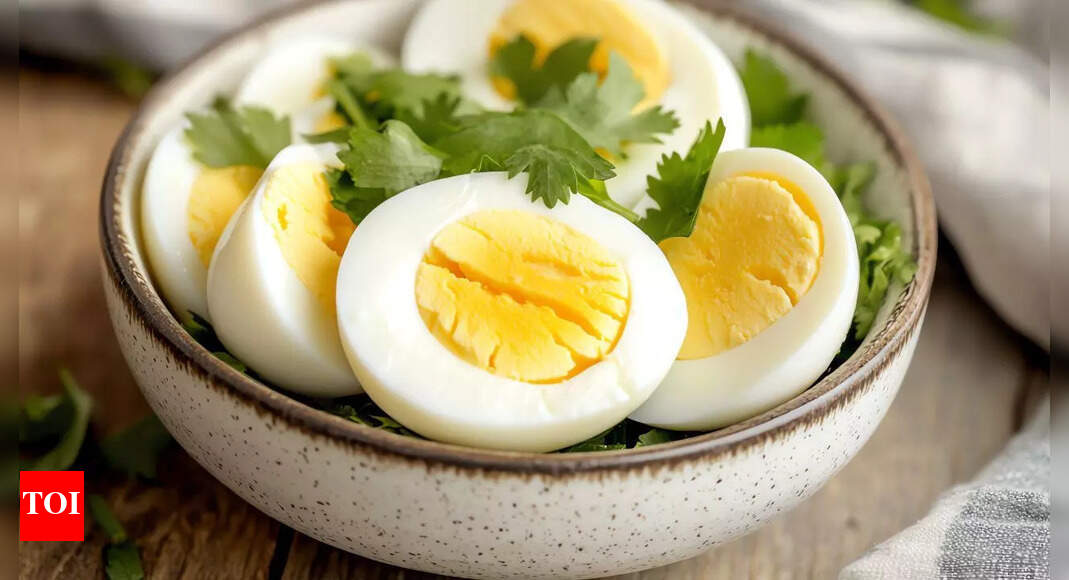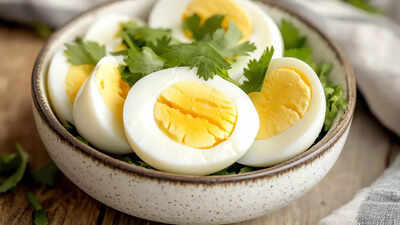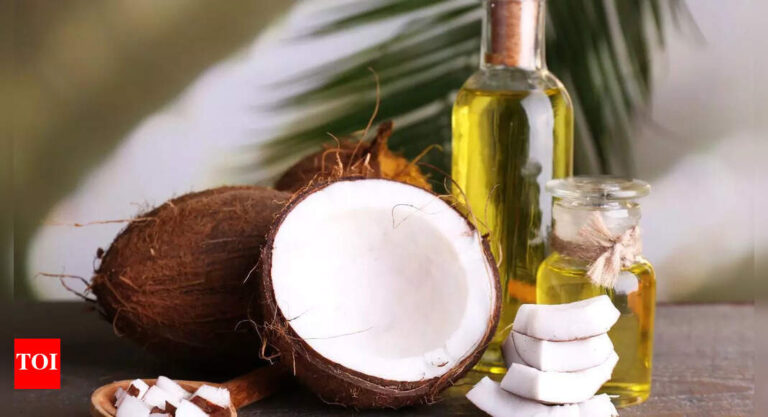
Adding salt to boiling water when cooking eggs is more than a traditional kitchen habit—it has a real scientific purpose. While many believe it helps with peeling, its true role lies in how it interacts with the proteins in the egg white. Salt alters the protein environment, causing them to coagulate faster, which is particularly useful if an egg cracks during boiling. This prevents the liquid egg white from leaking into the water and keeps the rest of the egg intact. Understanding this simple yet effective technique can help home cooks achieve consistently firm, well-cooked eggs every time.
What really happens when an egg cracks in boiling water
Boiling an egg triggers a molecular chain reaction. The heat causes albumen proteins in the egg white to denature, meaning they unfold and re-bond in new configurations, forming a firm gel. This process, known as protein coagulation, is what transforms a raw egg into a solid, firm one. However, eggs are often exposed to thermal stress or may develop microfractures in the shell during boiling. When a crack forms, liquid egg white can escape into the water, creating a stringy, unappealing mess. This is where salt proves its value.
How salt prevents egg white from leaking
According to a study published in ScienceDirect, adding salt to boiling water changes the environment around the egg white proteins, making them coagulate more quickly. When an egg cracks during boiling, this rapid coagulation forms a natural “plug” at the site of the crack, preventing the liquid egg white from spilling into the water. Even a small pinch of salt can cause the egg white to set almost immediately upon contact with the hot water, keeping the rest of the egg intact. This demonstrates that salt’s role is not just traditional, it serves a practical, scientific purpose in controlling how proteins respond to heat.
The myth of easier peeling
One persistent kitchen myth is that salted water makes boiled eggs easier to peel. This is false. Peelability depends on three main factors: the age of the egg, post-cooking temperature shock, and the starting temperature of the water. Fresh eggs tend to stick to the shell membrane, while eggs that are 7–10 days old peel more easily. Ice baths also help by causing the egg white to contract away from the membrane. Salt, however, has no impact on peeling.
The science behind salt and perfect egg cooking
Salt’s effect on eggs is grounded in scientific principles rather than culinary superstition. Proteins are highly sensitive to ionic changes in their environment, meaning that adding salt to boiling water directly affects coagulation. These principles are applied widely in food science, from cheese-making to meat curing, where salt modifies proteins and helps retain water. Unlike many viral cooking hacks, the use of salt for cracked eggs is supported by peer-reviewed research, showing that traditional practices sometimes have a basis in chemistry.Eggs may appear simple, but they are highly complex chemically. Egg white alone contains over 40 different proteins, each sensitive to cooking conditions. Even small changes in water salinity or temperature can significantly alter cooking outcomes. This complexity explains why some eggs hold together perfectly while others create a stringy mess when cracked. Understanding these variables allows home cooks to manage potential problems more effectively, making salt an important tool for ensuring well-cooked eggs.
Practical tips for perfect hard-boiled eggs
To achieve perfect hard-boiled eggs, several factors should be considered. Start with older eggs, which peel more easily, and place them in boiling water rather than cold to reduce thermal shock. After cooking, immediately transfer the eggs to an ice bath to help the egg white contract from the membrane. And don’t forget the salt—not for peeling, but to protect against cracks and leaking whites. By combining these techniques, home cooks can consistently produce firm, intact eggs without the frustration of messy, stringy whites.Salt in boiling water may seem like a minor detail, but its effect on egg protein coagulation is significant. While it won’t help with peeling, it acts as a protective agent for cracked eggs, ensuring clean, intact whites. Paired with proper egg selection, temperature control, and ice baths, a pinch of salt can make a major difference in your hard-boiled eggs. Understanding the science behind this simple kitchen practice allows cooks to move beyond myths and use salt strategically, producing better results and avoiding common cooking frustrations.Disclaimer: This article is for general informational purposes only and is not a substitute for professional medical advice, diagnosis, or treatment. Always seek the guidance of a qualified healthcare provider regarding any medical condition or lifestyle change.Also Read: The spicy journey of chili peppers across continents and cuisines: Mexico to global kitchens







